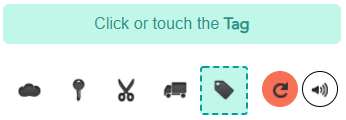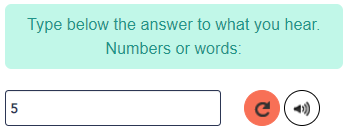Compare Auto Insurance Rates
Learn more about the factors that dictate your auto insurance rates, compare top insurers, and save.
 Your information is secure.
Your information is secure. Auto Insurance

Why You Need Car Insurance
No matter which auto insurance quote you go with, the most important thing is your car insurance provides the coverage you need. We want you to be Car insurance protects you from financial liability in incidents involving your vehicle. It has two major benefits. First, it can help save you from costs involved with bodily injury (medical costs).
Second, it covers property damage to both you and your property, and other people involved in the accident if you’re at fault. Car insurance is required in most states and it is illegal to operate a car without it.
If you’re leasing or financing your car, you may need to carry additional auto insurance — namely, comprehensive, collision, and sometimes gap insurance.
Car insurance is designed to financially protect drivers and their vehicles after damaging incidents. A car insurance company's financial resources will compensate you for damages sustained by your vehicle — or others' person or vehicles — if they are affected by a collision.
What car insurance covers?
In general, car insurance covers damage, vandalism, and theft of your vehicle. But what any specific auto insurance policy will cover depends on the coverage type(s) you have. Each car insurance policy is made up of at least one of the following:

• Liability insurance: Doesn’t cover your vehicle, but covers damage you cause to others in an accident. It is made up of bodily injury (BI) and property damage (PD).

• Collision and comprehensive insurance: Collision insurance covers your vehicle in case of a collision; comprehensive insurance covers your vehicle in the event of anything else (theft, vandalism, etc).

• Personal injury protection (PIP): PIP covers medical expenses, lost wages, and other damages. It’s required in “no-fault” states because it pays regardless of legal liability.

• Uninsured /underinsured motorist insurance: If you’re in an accident with an uninsured driver and they’re at fault, uninsured motorist insurance means you’ll still be covered. Like liability insurance, bodily injury and property damage are covered here, but for you instead of the other driver.

No-fault states are states in which drivers can file a claim with their insurer regardless of which driver is at fault.
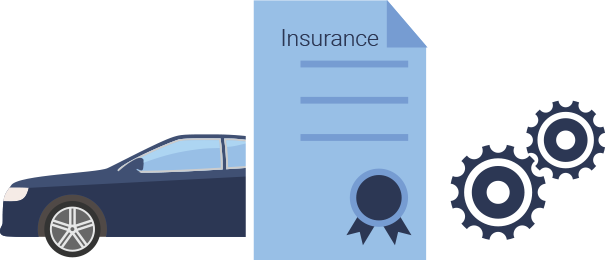
How car insurance works.
Some people are hesitant to file a car insurance claim, fearing that their premiums will increase even if they aren’t at fault. However, this isn’t necessarily true, and an insurance company will look at the damage involved and who is responsible for the accident before deciding whether or not a claim results in a rate increase. If you find yourself in an auto accident, whether it’s a fender bender or your car is totaled, exchange insurance information with any involved parties. Even damage that looks cosmetic may have comprehensive damage that you can’t see, so you should file a claim.
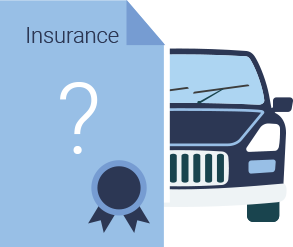
Is car insurance worth it?
Besides being legally required in almost every state, auto insurance is an incredibly important part of your financial safety net. The average car insurance claim in 2013 was over $15,000 for bodily injury and over $3,200 for property damage. Car insurance is there to cover medical bills, vehicle repair or replacement, and keeps you off the hook for injury and damage liability for others. Your premiums will go up if you cause an accident, but that’s better than the alternative.
How to find affordable auto insurance rates
There are many options available in car insurance. Depending on a variety of individual rating factors, certain companies will price your insurance differently. You could end up paying more by choosing the wrong company or failing to compare enough companies. We've outlined the factors that go into your car insurance premiums, as well as some tips for how to find the best possible rates. Let’s get started.


What goes into car insurance rates?
Your auto insurance rate depends on who you are as a driver, as well as your age, your credit, your vehicle, and your location. How insurance companies weigh these attributes is reflected in your premium. For example, having a limited driving history or a poor credit score can raise your rates dramatically. Our analysis of major rating factors shows how premiums shift from company to company.
Your age
Your driving history
Your credit level
Your vehicle
Your location


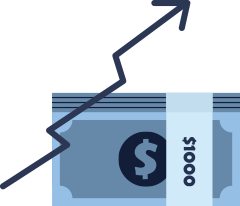

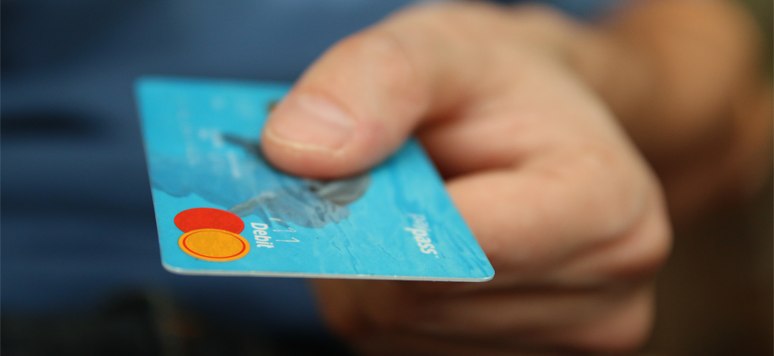
What is a car insurance premium?
An auto insurance premium is the rate you pay an insurance company for the protection it provides. Car insurance premiums can be paid on a monthly basis or paid in full at the initiation of the policy (up-front payment may land you a discount 5-15% saving). How much your car insurance premiums cost comes down to a wide variety of factors

Car insurance comparison by driving history
Naturally, insurance companies use your driving past as an indicator of how you will drive in the future. It can be difficult to find affordable car insurance if you have a checkered driving history. While it’s very unlikely you will find an insurance company that won’t increase your premium after an at-fault accident or other violation, the degree of the rate increase will vary by company. Let’s compare rate increases for some common violations across major insurance companies.
At-fault accidents and car insurance rates:
On average, an at-fault property damage accident will raise your premium by an average of $612 per year. Because most insurance providers will charge you for three years after an accident, this $612 increase equates to more than $1,800 in total fees. If you’re thinking of filing a claim, consider the overall cost of the claim versus what the claim would cost to pay out of pocket. Compare this $1,837 penalty — plus your deductible (if applicable) — to the out-of-pocket expense. While this is nice information to know before filing a claim, it won’t help if you’ve already filed a claim. If you have an at-fault accident on your insurance history, consider USAA or State Farm.
DUI conviction


In most states, a DUI is the most costly violation you can receive. Moreover, in states like California, it will stay on your insurance record for 10 years! Based on our analysis of the most popular car insurance companies, this would set you back an average of $1,200 in insurance rate increases during that 10-year period. To limit costs, do your due diligence and shop around: Progressive and USAA are the cheapest insurance options after a DUI — consider starting with those providers.
Reckless Driving


Like a DUI, a reckless driving citation can raise your car insurance rates. If you’ve received a reckless driving citation, your best bets for cheap car insurance are USAA and State Farm, despite the latter being one of the more expensive insurance companies if you don’t have a violation. This shows the importance of comparing car insurance rates carefully — your driving profile will be handled differently by every carr
Compare car insurance by credit score
Another major contributor to your car insurance rate is your credit score. While not directly related to your driving, car insurance companies believe your credit score says a lot about what kind of client you’ll be. Compare how car insurance companies factor credit score into their rates:
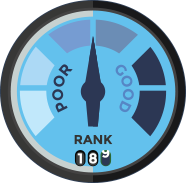
Very Poor: 300-579
Fair: 580-669
Good: 670-739
Great: 800-850

6-month car insurance premiums (very poor credit):
If you have very poor credit, the cheapest car insurance company is Nationwide. Here, your premium will be more than $435 less than the group average. Compared to the highest credit level, drivers with bad credit pay nearly $1,450 more per year for auto insurance. If you pay off a loan or otherwise improve your credit score, you should shop around for car insurance as your premium should change. Just another reason to keep your score up!
6-month car insurance cost for fair credit
With rates $400 less than the group average, USAA offers the cheapest insurance for drivers with 'fair' credit scores. Even so, a fair credit score will result in elevated rates. While the average premium for fair credit drivers is $854, that's $229 more than those with 'great' credit are paying, with all other metrics constant.
Compare car insurance rates by location
Your location can have a huge impact on your insurance premium. Like many industries in the US, car insurance is regulated at the state level and is dictated by each state’s regulations. If you live in an area prone to floods, hurricanes, or wildfires, your rate will be elevated, as insurance companies compensate for these risks. Dive into the data below to find check out your expected costs with our list of car insurance rates by city.
| State | Average 6-Month Premium |
|---|---|
| New York | $1,407 |
| Los Angeles | $1,255 |
| Chicago | $798 |
| Houston | $1,071 |
| Philadelphia | $1,260 |
| Phoenix | $801 |
| San Antonio | $951 |
| San Diego | $869 |
| Dallas | $1,069 |
| San Jose | $884 |
| Austin | $899 |
| Jacksonville | $993 |
| San Francisco | $1,051 |
| Indianapolis | $627 |
| Columbus | $575 |
| Fort Worth | $923 |
| Charlotte | $547 |
| Detroit | $2,732 |
| El Paso | $912 |
| Seattle | $727 |
| Denver | $926 |
| Washington | $748 |
| Memphis | $897 |
| Boston | $797 |
| Nashville | $723 |
| Baltimore | $978 |
| Oklahoma City | $890 |
| Portland | $858 |
| Las Vegas | $1,305 |
| Louisville | $1,040 |
| Milwaukee | $725 |
| Albuquerque | $784 |
| Tucson | $681 |
| Fresno | $927 |
| Sacramento | $1,042 |
| Long Beach | $991 |
| Kansas City | $791 |
| Mesa | $704 |
| Atlanta | $926 |
| Virginia Beach | $482 |
| Omaha | $700 |
| Colorado Springs | $896 |
| Raleigh | $474 |
| Miami | $1,457 |
| Oakland | $1,051 |
| Minneapolis | $829 |
| Tulsa | $902 |
| Cleveland | $642 |
| Wichita | $785 |
| New Orleans | $1,843 |


Below are the average six-month premiums for every state in the US.
| City | Average 6-Month Premium |
|---|---|
| Alaska | $595 |
| Alabama | $686 |
| Arkansas | $747 |
| Arizona | $610 |
| California | $874 |
| Colorado | $831 |
| Connecticut | $754 |
| Washington DC | $748 |
| Delaware | $898 |
| Florida | $988 |
| Georgia | $761 |
| Hawaii | $541 |
| Iowa | $494 |
| Idaho | $512 |
| Illinois | $600 |
| Indiana | $571 |
| Kansas | $737 |
| Kentucky | $956 |
| Louisiana | $1,123 |
| Massachusetts | $611 |
| Maryland | $638 |
| Maine | $448 |
| Michigan | $1,282 |
| Minnesota | $636 |
| Missouri | $695 |
| Mississippi | $767 |
| Montana | $696 |
| North Carolina | $471 |
| North Dakota | $664 |
| Nebraska | $641 |
| New Hampshire | $550 |
| New Jersey | $815 |
| New Mexico | $670 |
| Nevada | $807 |
| New York | $768 |
| Ohio | $505 |
| Oklahoma | $766 |
| Oregon | $682 |
| Pennsylvania | $678 |
| Rhode Island | $1,007 |
| South Carolina | $687 |
| South Dakota | $673 |
| Tennessee | $706 |
| Texas | $896 |
| Utah | $594 |
| Virginia | $455 |
| Vermont | $538 |
| Washington | $588 |
| Wisconsin | $531 |
| West Virginia | $711 |
| Wyoming | $688 |


Auto Insurance
What car insurance covers?
How car insurance works.
Is car insurance worth it?
How to find affordable auto insurance rates
What goes into car insurance rates?
What is a car insurance premium?
Car insurance comparison by driving history
Compare car insurance by credit score
6-month car insurance premiums
Compare car insurance rates by location
Average 6 months premiums for every state in the US9
















